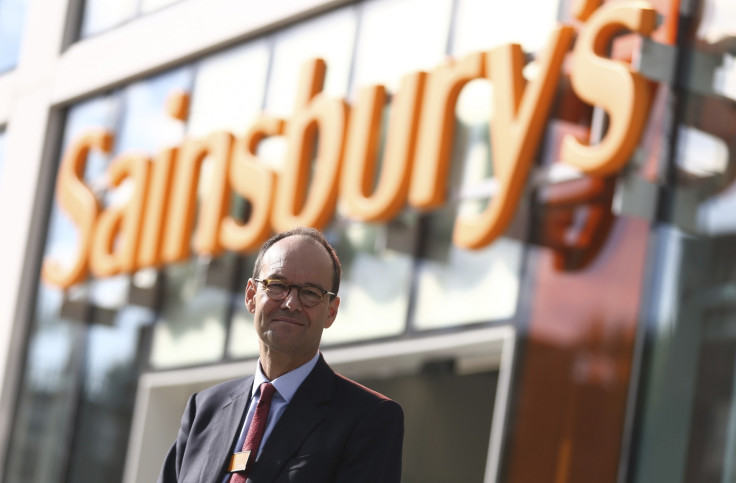Sainbury's boss wants 'fundamental reform' of business rates amid fears for high street stores
Mike Coupe wants a 'level playing field' between stores and online retailers.

The chief executive of Sainsbury's has called for "fundamental reforms" to business rates, saying the current system punishes high street stores while cutting bills for online retailers like Amazon.
Mike Coupe becomes the latest figure to add pressure to the government to reconsider the levy when it is revalued in April, amid concerns it could spark shop closures.
He said the current setup, where business rates are pegged to property valuations, was "archaic" and that a "level playing field" against online retailers was needed.
"The way it currently stands, there is an advantage for those without bricks and mortar operations, so there's a strong case for a level playing field in business rates and taxation more generally," Coupe told the Press Association. "Businesses like ours with lots of property and employees face a bigger burden than others."
Critics say the overhaul – the first in seven years – has brought into sharp relief the discrepancy between taxes paid by businesses reliant on consumer-facing properties and online retailers.
From April, businesses whose properties have a rateable value above £12,000 ($14,900, €14,030) will pay business rates. These will be lower for 920,000 businesses, remain the same for 420,000, and increase for 510,000.
Businesses with properties in high-priced urban centres, especially in the south-east of England, will be disproportionately hit. This includes not only shops but also pubs, hospitals and hotels.
Sainsbury's bill will see a rise from £483m to around £500m, for example, while Amazon is expected to have its business rates bill cut at most of its out-of-town warehouses.
"As it stands, we could see high streets face serious challenges and ultimately more closures. It could impact investment in places that most need it, in areas of the country where there is already a marginal call on investment," Coupe said.
The Sainsbury's boss called on ministers to undertake a wide-ranging review of the way businesses are taxed, taking into account the rise of online-only competitors.
"Our challenge to the government is for a fundamental reform of business rates, because we believe it is an archaic and outdated system. More than that, we'd like the government to look at business taxation in general," he said.
Three-quarters (74%) of small firms in London have said that business rates are the single biggest issue affecting their company, according to a survey report published on Friday (17 February) by the Federation of Small Businesses (FSB).
About four-in-ten said that they expect a rise of over 20% in business rates when changes come into play in April.
Several business groups have called for changes to the system, including the CBI, the British Retail Consortium and the FSB.
But the government has accused its critics of "scaremongering", saying the retail sector as a whole will see its business rates bill decrease by 6% following the revaluation.
David Gauke, the chief secretary to the Treasury, said: "Three-quarters of businesses are actually going to see their business rates fall or stay the same. Outside London, average bills are falling by 11%. So it is right that we bring it up to date.
"It is also right that there is transitional support for those one-in-four businesses that are seeing an increase in their business rates. We have got a £3.6bn transitional package to try to smooth that increase. But it is right that we bring business rates values up to date to reflect current rental values."
© Copyright IBTimes 2024. All rights reserved.






